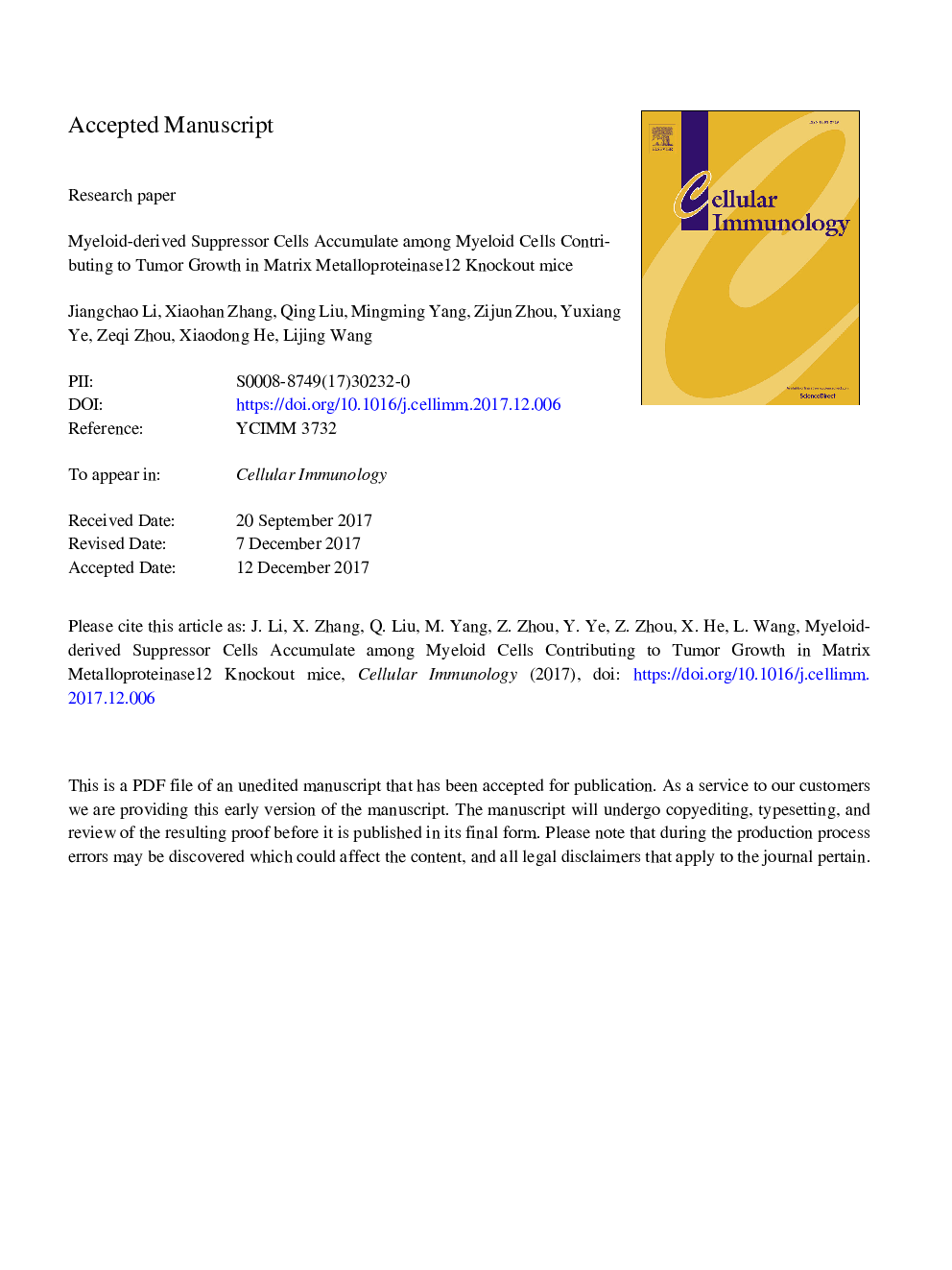| Article ID | Journal | Published Year | Pages | File Type |
|---|---|---|---|---|
| 8463554 | Cellular Immunology | 2018 | 38 Pages |
Abstract
Myeloid-derived suppressor cells (MDSCs) are found frequently in patients and mice bearing tumors, which derived from immature myeloid cells. In healthy individuals, immature myeloid cells formed in the bone marrow differentiating to dendritic cells, macrophages and neutrophils. However, it is unclear whether some gene deficiency will lead to MDSCs accumulation in mice without bearing tumor. Here, we observed that MDSCs accumulated in the bone marrow of matrix metalloproteinase 12 knockout mice (MMP12â/â mice) compared with wild type mice (MMP12+/+ mice). And the number of CD4+ cells dramatically decreased, regulatory T cells was up-regulation and MDSCs function were determined. The results suggested that immune surveillance have been impaired in MMP12â/â transgenic mice. After intravenous administration of B16 murine melanoma cells, MMP12â/â mice developed more metastatic pulmonary nodules than MMP12+/+ mice. Meanwhile, more MDSCs appeared in the tumors of MMP12â/â mice compared with those of MMP12+/+ mice. Mechanistically, we performed a MDSC blocking assay, finding that blockade of MDSCs resulted in reducing growth of tumors in MMP12â/â mice. Furthermore, we ascertained that macrophages in MMP12â/â mice abundantly secrete IL-1β in bone marrow which induce the accumulation of MDSCs in the bone marrow. Together, these results demonstrated that the macrophages in MMP12â/â mice could crosstalk with myeloid cells through IL-1β, inducing MDSCs accumulation, then contributing to tumor growth. It has revealed that the critical roles of macrophage in myeloid cells differentiation.
Keywords
Related Topics
Life Sciences
Biochemistry, Genetics and Molecular Biology
Cell Biology
Authors
Jiangchao Li, Xiaohan Zhang, Qing Liu, Mingming Yang, Zijun Zhou, Yuxiang Ye, Zeqi Zhou, Xiaodong He, Lijing Wang,
